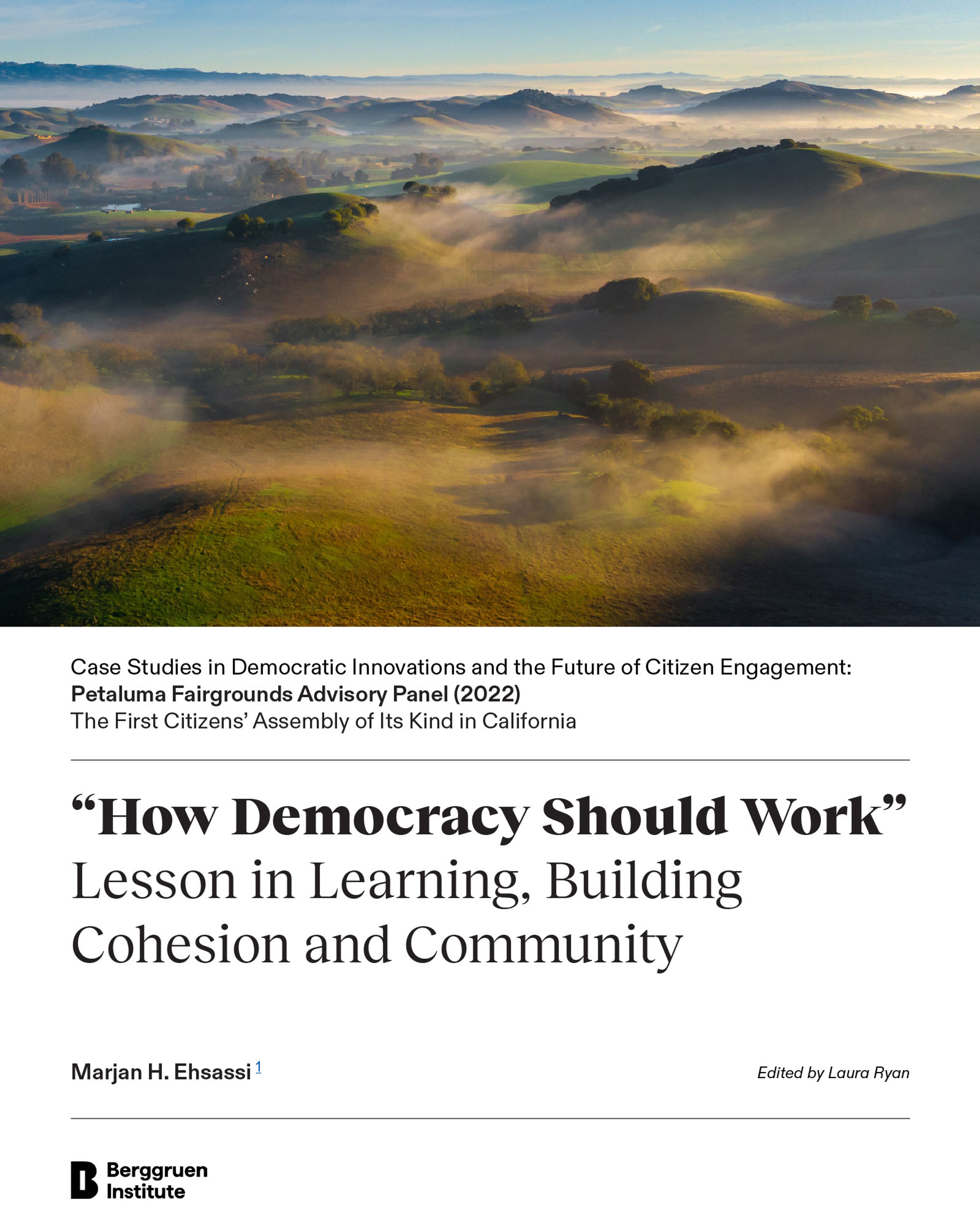“How Democracy Should Work” Lesson in Learning, Building Cohesion and Community

Something special happened in a small community just north of San Francisco during the summer of 2022. The city of Petaluma decided to do democracy a bit differently. To figure out what to do about a seemingly-intractable local issue, the city of 60,000 decided policymakers and “experts” shouldn’t be the only ones at the decision-making table—residents of Petaluma also ought to have a voice. They would do this by instituting a Citizens’ Assembly—the first of its kind in California.
Citizens’ Assemblies and sortition are not new ideas; in fact, they’ve helped citizens engage in decision-making since Ancient Greece. Yet only recently did they resurge as a possible antidote to a representative democracy that no longer reflects citizens’ preferences and pervasive citizen disengagement from political institutions. Also referred to as lottery-selected panels or citizens’ panels, this deliberative platform has gained popularity in Western Europe but is only just beginning to make inroads in the United States. The Petaluma City Council’s decision to invite Healthy Democracy (healthydemocracy.org), a leading U.S. organization dedicated to designing and implementing deliberative democracy programs, to convene a citizens’ assembly on the future of a large plot of public land, demonstrates unique political vision and will. This decision contributes to a roadmap for innovative ways to engage with citizens.
This case study examines this novel moment of democratic experimentation in California, which became known as the Petaluma Fairgrounds Advisory Panel (PFAP). It begins with a description of the context, a summary of the PFAP’s design, composition, and process, and a discussion of the role of the government-lead or sponsor, the Petaluma City Council. An analysis of the impact of participation on the Panelist using a methodology developed by the author in several other case studies follows. Finally, the last section provides several recommendations to enhance the impact of such processes as well as thoughts on the future of deliberative platforms.